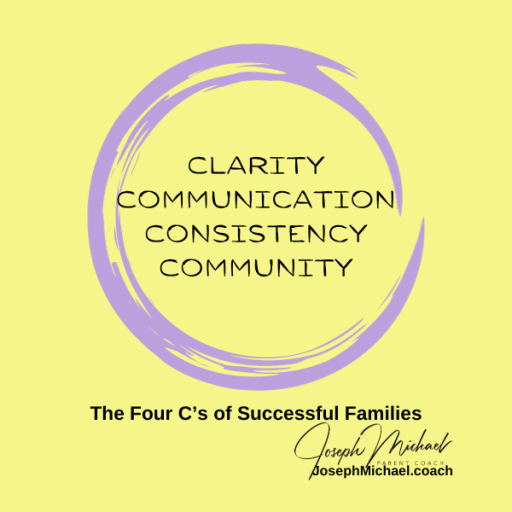
The Power of Self-Discipline in Parenting
Parenting is one of the most rewarding yet challenging roles we can undertake. It demands a delicate balance between love and discipline, patience and firmness, and nurturing and guidance. Amidst all these demands, self-discipline is a vital quality that can help parents navigate the complexities of raising children.
Why Self-Discipline Matters in Parenting
Self-discipline is not about being rigid or overly strict with oneself; instead, it’s about having the inner strength to act in alignment with one’s values and commitments, even when it’s complicated. For parents, this means consistently showing up for their children, managing their emotions, and setting clear and healthy boundaries. These elements are crucial for effective parenting and contribute significantly to a child’s sense of security and well-being.
Fostering Consistency and Reliability
Children thrive in environments where they know what to expect. Consistency in parenting creates a sense of order and predictability, which helps children feel safe and secure. When parents practice self-discipline, they are likelier to enforce rules and routines consistently. This means that children learn to trust that their parents will follow through on what they say, whether it’s a promise of a reward for good behavior or a consequence for breaking a rule.
For example, a parent who commits to a consistent bedtime routine and sticks to it, even when tired or tempted to let it slide, teaches their child the importance of healthy sleep habits and the value of following through on commitments. Over time, this consistency helps children develop their sense of discipline and responsibility.
Managing Emotions and Stress
Parenting is emotionally demanding, and sometimes, it’s natural to feel overwhelmed or frustrated. However, self-discipline empowers parents to manage their emotions constructively. Instead of reacting impulsively out of anger or frustration, a parent who practices self-discipline can take a step back, breathe, and respond thoughtfully.
This emotional regulation prevents harmful outbursts and models healthy coping mechanisms for children. When children see their parents handling stress calmly and composure, they learn to do the same in their own lives. This creates a home environment where emotions are expressed appropriately and conflicts are resolved peacefully.
Setting and Enforcing Boundaries
Boundaries are essential in family life. They teach children what is acceptable behavior and help them understand the consequences of their actions. Self-discipline enables parents to set clear boundaries and enforce them consistently, even when uncomfortable or inconvenient.
For instance, if a child is used to getting what they want by throwing a tantrum, it can be challenging for a parent to resist giving in. However, a parent with self-discipline recognizes the importance of standing firm in their decision, understanding that giving in would only reinforce negative behavior. Parents help their children learn self-control and respect for others by maintaining boundaries.
Balancing Self-Care and Family Responsibilities
One of the most significant challenges parents face is balancing their own needs with the demands of parenting. It’s easy to become so focused on caring for your children that you neglect your own well-being. However, self-discipline includes the ability to prioritize self-care, recognizing that taking care of yourself is essential to being your best parent.
Self-care is not selfish; it’s vital to maintaining the physical and emotional energy required for parenting. Whether it’s making time for exercise, pursuing a hobby, or simply taking a few moments each day to relax and recharge, self-discipline helps parents ensure they don’t burn out. When parents care for their own needs, they are more patient, energetic, and positive, benefiting their children.
Creating Healthy Routines
Routines play a crucial role in family life, providing structure and stability. Self-discipline helps parents establish and maintain these routines, from daily schedules to family traditions. These routines make daily life run more smoothly and promote healthy habits in children.
For example, a parent who is disciplined about meal planning and preparation ensures that their children eat balanced, nutritious meals, which supports their overall health and development. Similarly, a parent who prioritizes family time, such as shared meals or weekend activities, fosters a strong family bond and creates cherished memories.
Aligning Actions with Values and Goals
At the heart of self-discipline is aligning your actions with your values and long-term goals. For parents, this means making decisions that reflect what they believe is best for their children, even when it’s difficult or inconvenient.
Whether choosing to spend quality time with your child instead of catching up on work or consistently enforcing screen time limits, self-discipline helps parents stay true to their parenting philosophy. This alignment strengthens the parent-child relationship and reinforces the values you wish to instill in your children.
The Ripple Effect of Self-Discipline in Family Life
Self-discipline is more than just a personal virtue; it’s a powerful tool that shapes the dynamics of family life. When parents practice self-discipline, they create a home environment marked by consistency, emotional stability, and healthy boundaries. They also model the importance of self-care and personal responsibility, teaching their children valuable life skills.
By cultivating self-discipline, parents enhance their well-being and lay the foundation for a nurturing and supportive family environment. In doing so, they empower their children to develop self-discipline, setting them up for success in all areas of life. So, as you navigate the joys and challenges of parenting, remember that self-discipline is your ally—helping you be the best parent you can be and building a stronger, happier family.
Joe is a husband, father, grandfather, author, speaker, educator, course creator, and parent/family coach.
He helps parents develop unity, find clarity, communicate, and develop consistency in their parenting with the Four C’s of Successful Families. You can find his work on social media.
In addition, the Four C’s newsletter is enjoyed by many as it encourages parents to self-care, build their relationships with their partners, and raise their children.
And he loves to golf!





